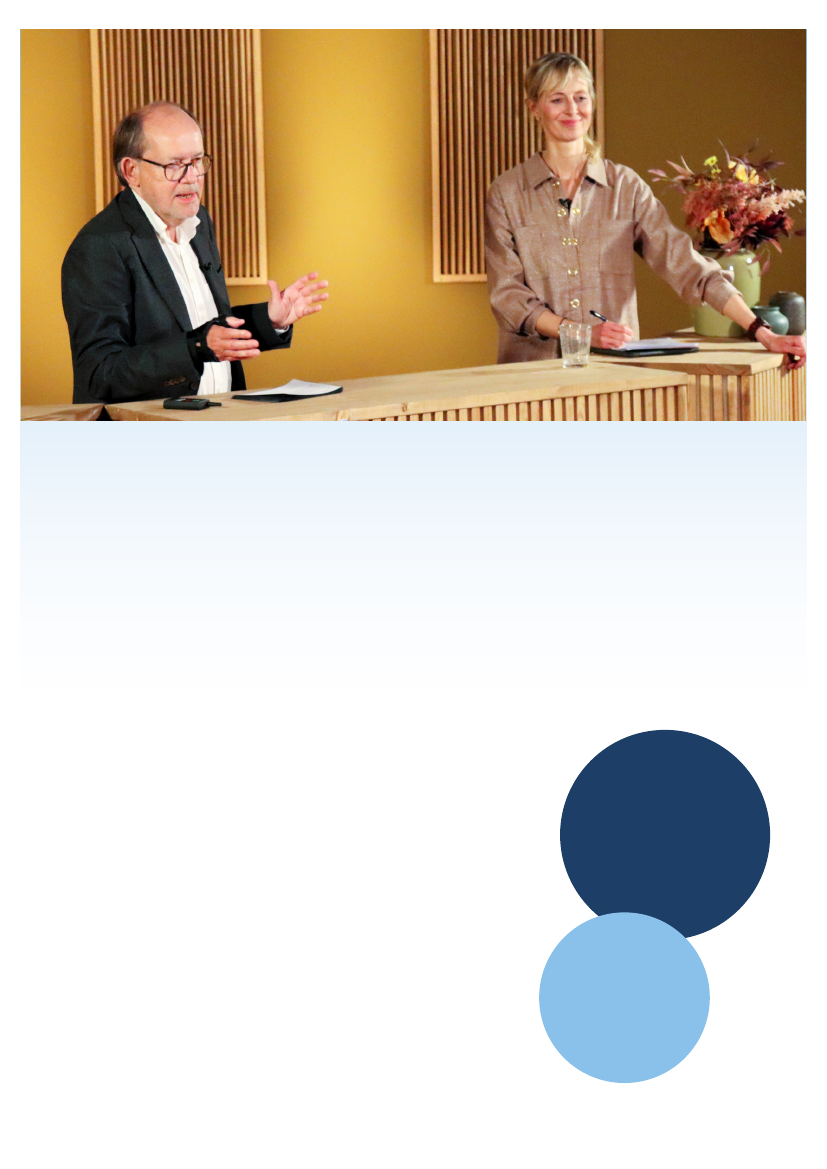
President of Eurordis Terkel Andersen
presented the necessity of patient
empowerment and recommendations
on specific mechanisms that can
empower people with rare diseases.
Launch of the Nordic Roadmap
On the 13th of April 2021 the Nordic Roadmap for Rare Diseases was launched to ensure a lasting
legacy of the Nordic Rare Disease Summit held on the 12-13th of April 2021 with a common
aspiration to elevate rare diseases as a national health priority in the Nordic countries.
The Roadmap is the culmination of 2 days
of knowledge sharing and debating be-
tween rare disease experts, decision- and
policymakers as well as representatives
from NGO’s, patient organizations, aca-
demia, and industry from across the Nor-
dic countries. The sessions were followed
virtually by more than 480 people across
the Nordics and beyond in an engaging
manner with inputs and live chat between
people connected across borders.
The Summit revolved around 3 pre-
identified themes: Diagnostic Delay, Pa-
tient Empowerment and Patients Access
to Innovative Treatment.
Each theme included presentations that
highlighted challenges, solutions and re-
commendations for the future which ex-
perts on the topic discussed thoroughly.
dis - Rare Diseases Europe, Microsoft
and Takeda with the purpose of short-
ening the diagnostic journey for children
with rare diseases. To accomplish this,
the Global Commission has launched
initiatives that combine recent break-
through diagnostics with state-of-the-
art AI capability.
”The Global Commis-
sion is committed to harnessing the
power of technology and empowering
families to accelerate the time to diag-
nose a child with a rare disease,”
stated
Clifford Goldsmith.
Major steps forward in shortening the
diagnostic journey of people with rare
diseases have been taken in some coun-
tries. For instance, Iceland has recent-
ly taken a major stride towards using
whole genome sequencing to diag-
nose more people with rare diseases. MD
PhD, Associate professor Hans Tómas
Björnsson elaborated:
”We have made
major strides by collaborating with De-
code Genetics who have been doing pro
bono whole genome sequencing. This
has enabled us to diagnose many more
people and it also increased the access to
genetic services for people across Iceland”.
In Denmark, considerable advances has
also been made, especially a promising
project from Copenhagen University Hos-
pital is worth mentioning. At the hospital
320 acutely ill babies were screened for
more than 2000 genes using whole ge-
nome sequencing. With a diagnostic rate
of about 30% and many of the diagnoses
being treatable, the project was a major
success. Projects like this could hopefully
also pave the way for a more systematic
use of whole genome screening in the
national neonatal screening program.
”We have several efforts that goes in the
same direction. An example could be our
screening service for acutely ill infants,
where we use whole genome sequencing
to screen for 2000 genes. We are un-
covering diagnoses we have never seen
before,”
explained Chief Physician Allan
Meldgaard Lund.
Early diagnosis is key
Among experts it became clear that no
matter which disease you may have, a
diagnosis is crucial for the patient and the
possibility to offer treatment.
”Without
the correct diagnosis, the health and wel-
lbeing of persons living with a rare disea-
se and their relatives will be severely im-
pacted,”
underlined Maria Montefusco,
Chair, Rare Diseases Sweden.
US Chief Medical Officer at Microsoft, Clif-
ford Goldsmith, presented the different
initiatives launched by the Global Com-
mission. New ways of diagnosing rare
diseases are evolving. The Global Commis-
sion is a collaboration between Euror-
The summit is officially
endorsed by EFPIA – The
European Federation of
Pharmaceutical Industries and
Associations, EUCOPE
– the European Confederation of
Pharmaceutical Entrepreneurs,
The Danish Haemophilia Society
(Bløderforeningen) and IML
– Innovative Smaller Life
science companies.
The summit was
organized by Takeda
and hosted in collaboration
with Rare Diseases Denmark
(Sjældne Diagnoser).
Eurordis, SBONN and Lif
joined as partners